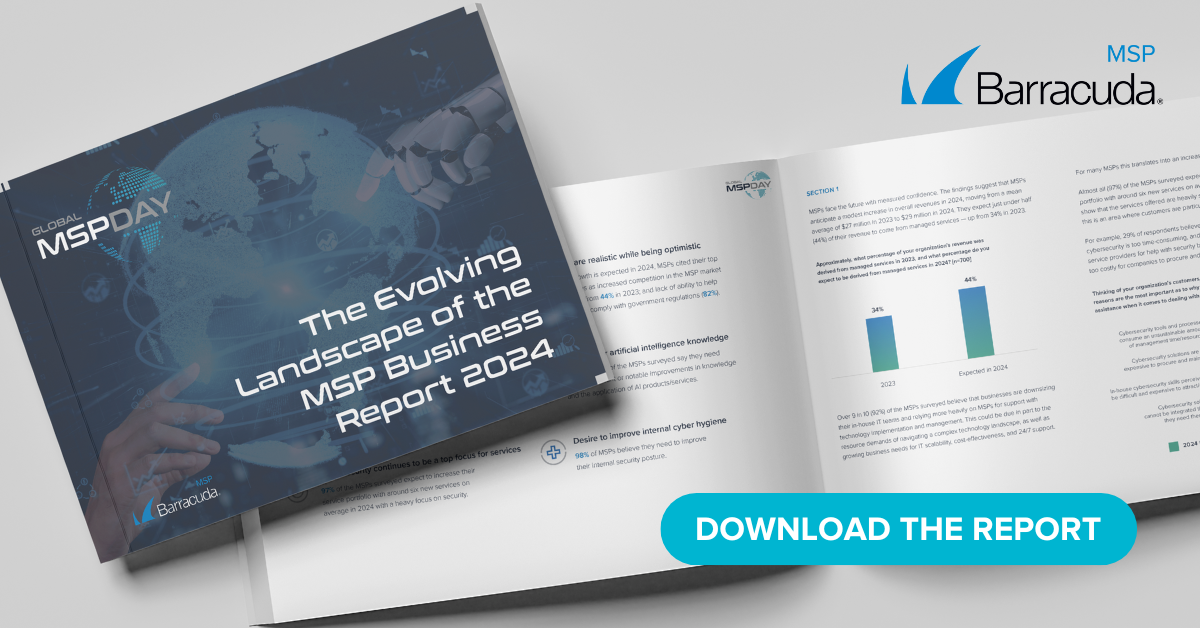 As a marketing professional with more than a decade of entrepreneurial experience, I tend to spend a lot of time talking to managed services providers about the ways that they can use digital marketing to continue to grow and evolve their businesses. Most of the time, I hear two distinct stories — usually from the same people.
As a marketing professional with more than a decade of entrepreneurial experience, I tend to spend a lot of time talking to managed services providers about the ways that they can use digital marketing to continue to grow and evolve their businesses. Most of the time, I hear two distinct stories — usually from the same people.
First, they tell me they believe in the power of digital marketing — particularly for the MSP space. They’ve heard all about how techniques like content marketing have both lower upfront costs and deeper long-term benefits than alternatives like paid search. They’re aware of the fact that small businesses with quality, well-maintained blogs get 126 percent more lead growth than those without. They’re big believers in the fact that social media is becoming a more critical tool with each passing day, especially since more people are using it for research when it comes time to make a purchase.
But, the end of the story isn’t nearly as optimistic as the beginning. These same people often tell me that despite their best efforts, these tactics just don’t seem to be working for them.
Marketing strategy, or lack thereof
The fact of the matter is that both of these ideas CAN be true at the same time. But, the reasons for that have nothing to do with social media sites like LinkedIn suddenly losing their power or Google pushing out yet another algorithm change that throws the entire world of SEO out of whack at the worst possible time.
People try Google AdWords one month, blogging the next, LinkedIn after that — and nothing seems to be sticking the way they need. When this happens, people often blame the tactic itself. For example, they think that while LinkedIn might be powerful for brands, it clearly doesn’t work for an IT-related business. So they move onto the next technique, and the next one, and the next one, when the real solution to the problem is right in front of them.
Far, far too many people fail to succeed with digital marketing tactics because there isn’t a clear strategy at the heart of it all. If you think the fact that you’re using digital marketing in the first place IS the strategy, you’re sadly mistaken.
Trying to create an effective, organic, and valuable digital marketing campaign without a strategy is a bit like being lost in the middle of the ocean. Yes, you’re in a boat and, sure, you know where you’re trying to get to — but you have no idea how you’re going to get there or even why it’s so important that you do.
The most important thing for people to understand about this challenge is that you’re not alone. According to one recent study, a shocking 49 percent of all organizations say they do NOT have a clearly defined digital marketing strategy in place. The second most important thing to understand is that this problem is easily fixable with the right perspective.
Building a marketing strategy: The inward-facing approach
The key to the development of any organic digital marketing strategy always begins by looking not outward toward your audience, but inward toward your organization itself.
Essentially, you need to know what you’re trying to accomplish and why before you can figure out how you’re going to do precisely that. You need to be asking a number of critical questions of your organization, including things like:
- What is it, specifically, that I want to accomplish with digital marketing? Am I trying to increase leads? Generate more conversions? Raise brand awareness? All of these at the same time?
- What type of business am I running today versus the one I want to be running in five or even 10 years?
- Why is digital marketing the best way to connect these two points?
- What types of problems are the people in my audience facing, and how do I put myself in the best position to solve those problems?
The answers to these questions will not just define your larger strategy, but they’ll also help identify the steps you need to take to act on that strategy. Once you’ve outlined exactly what it is you need to do, you can build a digital marketing campaign around those larger ideas. Essentially, once you know what problem you solve and for who, the tactics that you should choose (and how you should employ them) become blatantly obvious.
The consequences of a non-existent marketing strategy
For example, consider an MSP that works with small businesses — meaning literally anyone and everyone. Because the size and makeup of their audience is essentially limitless, narrowing down that focus and bringing a level of specificity to digital marketing becomes a challenge.
The message the MSP is trying to convey becomes weaker because it’s less specialized — they’re something of a “Jack of all trades, master of none” by design. This means their digital marketing in general will resonate with fewer people because it’s so broad, which will keep them from raising their prices and will make the sales process an uphill battle.
Now, compare that with an MSP that works exclusively for dental offices. Not only that, but they have a proprietary process for doing so — something that already makes them unique and helps them stand out from the crowd. They go to no less than three dental conferences per year, write one helpful article for the dental association in their area per month, and — to the surprise of nobody — their sales pipeline is totally filled. Not only that, but they’re also able to charge higher prices because they’re so heavily specialized.
Suddenly, they’re no longer “lost at sea.” They’re not just in a boat on the ocean. They know exactly where that boat needs to end up, which means they know which direction it needs to be pointed. And, they know exactly which path to take to get from where they are to where they want to be.
This, in essence, is how MSPs often waste money on the wrong type of marketing. You don’t just need ANY digital marketing tactic to be successful. You need the right approach for the right audience at exactly the right time. The only way you’re going to do that is by laying the solid foundation of a clear strategy first and then slowly but surely building on it from there.
Do you often feel like you’re “lost at sea” when it comes to marketing for your IT business? You’re certainly not alone, but thankfully, you’re also looking at a problem with a straightforward solution. If you feel like this describes your situation, I encourage you to apply for a one-on-one strategy call with us at Tech Pro Marketing. We’ll dive deep into your business, helping you to uncover your own unique voice and purpose so we can provide real change in both your business and your life.
Photo: bioraven/Shutterstock.com

Great article Nate, I really love how you have grown with this idea of focusing on your micro-niche. I have found that many MSP’s have no idea of where they are going, they want more customers but they haven’t got the rudder on the boat to steer the ship.
Often this is because of the fear from missing out, but this simply means the business doesn’t have a captain who is going to make the right strategic decisions.
I recently wrote a blog with your article in mind, and would love your feedback. If you could give me some ideas on how to make it better, I would appreciate it.
https://leftleads.com/grow-your-msps-monthly-revenue/
Simon